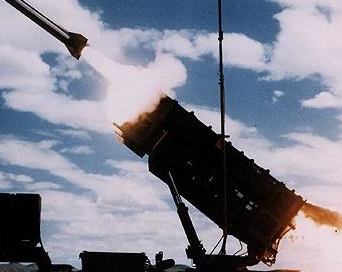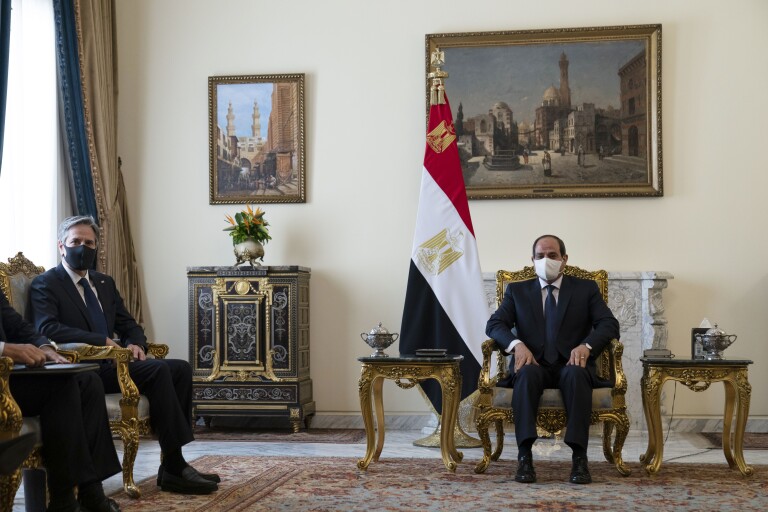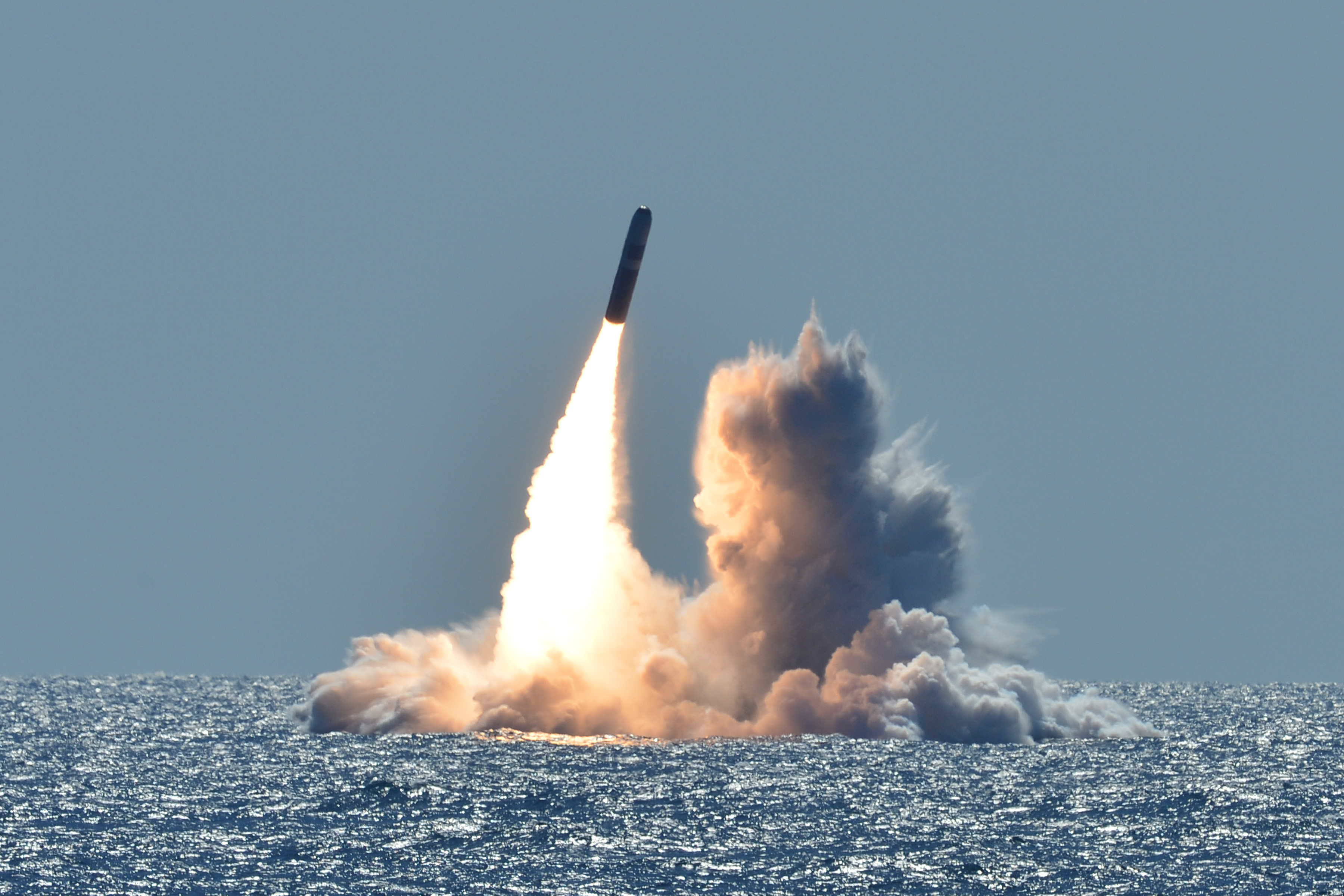
His administration has escalated dangerous conflicts
with Russia and China while increasing the military budget,
expanding deadly sanctions and sustaining forever wars.
Jeremy Kuzmarov / CovertAction Magazine
(December 31, 2021) — Covert Action Magazine endorsed Biden for president as a lesser evil to the neofascism of Donald J. Trump and the modern-day GOP. At the same time, we warned readers about Biden’s past and long record as a Cold Warrior and hawk.
Biden’s first year in office has shown that the past was indeed a prologue to the future.
While significantly scaling back on the US drone war, Biden
a) signed a defense bill that increased military spending by 5% over Trump’s already bloated military budget;
b) sustained massive arms sales to Saudi Arabia,
c) ratcheted up the new Cold War with China and Russia;
d) carried out murderous drone strikes in Afghanistan as the final salvo of a failed 20-year war,
e) continued bombing Syria under false pretexts,
f) extended the US war in Somalia while deploying more troops to the Horn region and Eastern Africa;
g) refused to enforce a ban on killer robots; and
h) continued Obama and Trump’s war on whistleblowers and pushed for the extradition of Julian Assange to face conspiracy charges.

Members of the Ahmadi family killed by US airstrike in Afghanistan
Key Appointments Set Tone
Biden set the tone for his first year through some of his major appointments. As Secretary of Defense, he selected Lloyd Austin III, a Raytheon Board member who awarded more than $10 billion in contracts to Raytheon in the first seven months of his tenure.
From 2013 to 2018, Austin served as commander of the US Central Command (CENTCOM), which is responsible for all military operations in the Middle East. His appointment breached the tradition of a civilian leading the Defense Department, which was enshrined in the 1947 National Security Act creating the Defense Department.
As Secretary of State, Biden selected Antony Blinken, Deputy Secretary of State from 2015 to 2017 whose support for America’s “forever wars” dated back to his advocacy for the 2003 invasion of Iraq as the Democratic staff director of the Senate Foreign Relations Committee — which Biden chaired at the time.
In the Obama years, Blinken was a key architect of Obama’s disastrous surge policy in Afghanistan and Syria policy.
Blinken also helped then Vice President Biden coordinate the provision of key military aid to Israel during its infamous 2014 assault on Gaza, and to formulate US policy toward Ukraine, which resulted in the escalation of a dirty war that left over 14,000 people dead.
In addition, Blinken supported the disastrous US-NATO war in Libya, and the Saudi war on Yemen, which has provoked the world’s worst humanitarian crisis.
Biden announcing appointment of Antony Blinken as Secretary of State. [Source: timesofisrael.com]
Other notable appointments by Biden included:
- Samantha Power as head of USAID. Nicknamed the “femme fatale of the humanitarian intervention movement,” Power became famous with her Pulitzer Prize-winning book, “A Problem from Hell”: America in the Age of Genocide (2003), which claimed that, too often in the past, the US had failed to intervene to halt genocide. Power was among the most hawkish members of the Obama administration and key champion of the illegal US war in Libya.
- Victoria Nuland as undersecretary of state for political affairs. Married to Robert Kagan, founder of the Project for the New American Century which lobbied for war in Iraq, Nuland served as an adviser to Vice President Dick Cheney on Iraq. She was later photographed handing out cookies to demonstrators during the Maidan Square protests in Ukraine in 2014 which culminated in a coup d’état ousting pro-Russian President Viktor Yanukovych. Nuland subsequently was caught on the phone plotting to install Arseniy Yatsenyuk as Ukraine’s post-coup leader and telling Ambassador Geoffrey Pyatt to “Fuck the EU.” Nuland is a hard-line Russophobe who in 2020 penned an article in Foreign Affairs entitled “Pinning Down Putin.”
- Jake Sullivan as top National Security Adviser. Sullivan previously worked as a top foreign policy aide to Vice President Joe Biden and Secretary of State Hillary Clinton during the Obama administration, where he was known for his hawkish views, advocating for early arming of the Syrian rebels and Ukrainian military. With Power, Sullivan was also a key architect of the war in Libya, which devastated that country.

Joe Biden and Ukrainian President Volodymyr Zelensky in September 2021.
AS CAM previously detailed, Vice President Biden was a major backer of the 2014 Maidan coup and hawk within the Obama administration on Ukraine, calling for the provision of Javelin anti-tank missiles at an early stage of the war.
Biden blackmailed the Ukrainian government and involved his son in an apparent CIA covert scheme to arm right-wing paramilitary groups who fought as auxiliaries to the Ukrainian Army in Eastern Ukraine.
Not skipping a beat, President Biden has provided $275 million in military aid to the Ukrainian government under Volodymyr Zelensky whom Biden met with in the White House, and more than $400 million in security assistance.[1]
The latest aid package included radar communication and electronic warfare equipment for the Ukrainian Air Force, and deployment of US training personnel to Ukrainian air bases along with cyber-security experts.
In October, Biden dispatched CIA Director William F. Burns to Moscow to warn the Kremlin about its troop buildup on the Ukraine border and to try to force it to back off. Russia though had not sent a single soldier outside its country, while Ukraine had unlawfully amassed 125,000 troops within the deconfliction zone established by the Minsk agreements and carried out over 200 unprovoked attacks, according to former Virginia State Senator and Pentagon official Richard H. Black. [2]
Russian Defense Minister Sergei Shoigu accused the Biden administration of deploying more than 120 mercenaries closely linked to the CIA in Avdeevka and Priazovskoe settlements in the Donetsk region. [3] The Biden administration appears intent on reigniting the war in Eastern Ukraine as part of a plan to strike a blow at the Russians. The Ukrainian regime was friendly to US investors and supported membership in the North Atlantic Treaty Organization (NATO)—whose expansion Biden has championed since the 1990s.

USS Carl Vinson in the South China Sea.
China — Playing with Fire
The Biden administration has doubled down on the Trump administration’s bellicose policy toward China, labeling China as “the key threat guiding US defense spending priorities,” as Lloyd Austin put it. This “threat” was not based on any military provocations, but rather the fact that China had pursued an independent policy and was coming to supersede the US economically.
Sanctioning over $7 billion for the Pacific Deterrence Initiative, a military buildup targeting China, [4] the Biden administration has kept pace with the Trump administration in the number of warships that the US has sent to the South China Sea, initiating 31 incidents with Chinese vessels through November. It has also threatened military action in support of the Philippines in their territorial disputes with China in the South China Sea.
In July, the Biden administration restored a visiting forces agreement with Filipino leader Rodrigo Duterte making it easier for US forces and ships to operate in the Philippines, including conducting large combat exercises there, and approved the sale of $2.5 billion worth of weaponry to the Philippines, including F-16 fighter jets and missiles, despite Duterte’s abhorrent human rights record.
Lloyd Austin bumps fist with Rodrigo Duterte in Manila in late September. Duterte’s War on Drugs has resulted in thousands of extrajudicial murders, to which US arms sales and aid were contributing. [Source: diepresse.com]
The Biden administration antagonized the Chinese further by ramping up sanctions and export controls over China’s human rights abuses toward the Uighur population in Xinjiang.
While constantly condemning China for its treatment of the Uighurs, Biden and his staff were silent about Duterte and Indian Prime Minister Narendra Modi’s growing authoritarian practices and incitement of violence against India’s Muslims, including in occupied Kashmir, where thousands had been placed in preventive detention.
President Biden in September shown greeting Indian Prime Minister Narendra Modi, a Hindu nationalist who has incited violence against Muslims in India. The latter’s plight—unlike that of the Uighurs in China—is politically inconvenient so has gone ignored. [Source: ndtv.com]
India was a key part of the “quad” (US, India, Australia, Japan) which the US has brought together as part of its anti-China policy. In early September, Biden angered the French by signing a pact to provide Australia with nuclear submarine technology (France previously supplied it with diesel submarines) so that it could better stand up to China.
Biden has also sanctioned the building up of US military bases in Guam—which locals liken to colonization.
The Biden administration set the tone for a strong US-Taiwan partnership by inviting Taiwan’s de facto ambassador to the US to the presidential inauguration—the first time a Taiwanese envoy had been invited since Washington switched diplomatic recognition away from Taiwan (Republic of China) to the People’s Republic of China (PRC) in 1979.
In early August, the Biden administration approved a $750 million arms sale to Taiwan that included 40 new self-propelled howitzers made by BAE Systems—a company that provided $364,000 to Democratic Party candidates in the 2020 election cycle—and 1,700 kits to convert projectiles into more precise GPS-guided munitions.
The Economist had previously labeled Taiwan as the “most dangerous place in the world” — which was indicative of the looming threat of war.
Angered over Biden’s invitation of Taiwan to a “Democracy” summit in Washington in December, Chinese Foreign Ministry spokesman Zhao Lijian said “Those playing with fire [Taiwan independence’ forces] will end up getting burned.”

Raytheon missiles intended for Saudi Arabia.
Saudi Arabia/Yemen — Business As Usual
In early November, Biden’s Pentagon inked a $650 million sale of air-to-air missiles to Saudi Arabia, which a Pentagon spokesman said would “improve the security of a friendly country for political and economic progress.”
The Pentagon reported that Austin’s old company Raytheon would be the “principal contractor” for the sale, which followed a $500 million helicopter maintenance deal for the kingdom in September. [5]
The latest missile sale came months after President Joe Biden said he would end US support for Saudi Arabia’s “offensive operations” in Yemen, including “relevant arms sales.”
Biden saw no contradiction because it was claimed that the missiles would not be used to “engage ground targets.”
A Brookings Institution study found that Biden’s “assertion that the US would end support for offensive operations [in Yemen] is a lie.”
Biden moved forward with Trump’s $23 billion weapons deal for the United Arab Emirates (UAE), which has waged the war in Yemen via proxy.
The Biden administration also failed to press for an end to the crippling Saudi blockade preventing fuel from coming into the Houthi-controlled Hobeida Port, which is a major source of the humanitarian crisis.
The goal of US policy is to sustain a strategic relationship with the Saudis and secure control of the island of Socotra, a transit point for the shipment of oil and China’s exports to Western Europe located just 3,000 kilometers from the US naval base at Diego Garcia, one of America’s largest overseas military facilities.
Biden’s continued fealty to Saudi Arabia was evident in his welcoming, Khalid bin Salman, Prince Salman’s brother and a key player in the Jamal Khashoggi assassination, to Washington for a high-profile visit.

Antony Blinken meeting with Egyptian dictator, Fatah al-Sisi.
Arming Trump’s Favorite Dictator
Saudi Arabia was not the only Middle-Eastern despotism supported by the US Biden’s Pentagon proposed selling $500 million worth of armed drones to the Qatari regime, a headquarter for Al-Qaeda led by the absolute monarch Tamim bin Hamad al-Thani.
Biden further approved more than $1 billion in assistance—including $170 million in military aid—to Egypt, which is ruled by Fatah al-Sisi, a man Donald Trump lovingly referred to as his “favorite dictator.”↑
Human Rights Watch documented a pattern of extrajudicial killings by al-Sisi’s security forces covered up as “shootouts,” and extensive unlawful home demolitions in North Sinai that led to the eviction of over a quarter of its population.
Dana Stroul, the deputy assistant secretary of defense for the Middle East said that “the current view of the administration [despite the human rights atrocities] is that Egypt is playing a constructive role when it comes to border security, Libya, GERD [Grand Ethiopian Renaissance Dam], obviously the conflict in Gaza,” and because it allowed “US military overflights and Suez Canal transit.”

Juan Guaidó with virtual US ambassador to Venezuela James Story.
South America — A Sleeper Monroe Doctrine
According to historian Greg Grandin, the Biden administration is pursuing “something like a sleeper Monroe Doctrine in Latin America, carrying forward many of Trump’s worst policies.”
These include: a) recognizing an alt-president in Venezuela; b) chastising Bolivia for trying to hold those responsible for the recent coup and repression legally accountable; and c) toying with the idea of filling in the gaps of Trump’s border wall.
The Biden administration has also sustained a vicious economic blockade of Cuba and 243 coercive measures adopted by the Trump administration that were designed to punish the small island nation for its defiance. [6]
When the left-wing Sandinistas won elections that the US had attempted to manipulate, Biden signed into law the Reinforcing Nicaragua’s Adherence to Conditions for Electoral Reform Act (RENACER), which extended economic sanctions that were designed to punish Nicaraguans for voting the “wrong way” and cripple Nicaragua’s economy. [7]
The Biden administration also sustained crippling sanctions on Venezuela, which according to a study by Jeffrey Sachs and Mark Weisbrot, have killed 40,000 people.
Biden was the first Democratic Party candidate to recognize right-wing imposter Juan Guaidó as Venezuela’s leader over socialist Nicolás Maduro, who legitimately won the 2018 election. Guaidó was invited as a Venezuelan delegate to Biden’s “Democracy Summit” in December even though he had not stood for elections in six years and was involved in numerous coup attempts.[8]
In October, the US extradited one of Maduro’s close advisers, Alex Saab, from Cape Verde on charges of money laundering and links to Hezbollah in what Maduro considered an act of international kidnapping.
A man walks past graffiti reading, “Freedom for diplomat Alex Saab, kidnapped by the government of Cape Verde,” in Caracas, Venezuela, February 23, 2021. [Source: voanews.com]
Symbolic of the US’s declining clout, Argentina, St. Lucia, Peru and Mexico refused to participate in the anti-Maduro Lima Group and Maduro was greeted warmly in Mexico.
The Biden administration’s double-standards were apparent in Biden’s refusal to impose sanctions on Honduras when its president, Juan Orlando Hernández, was under investigation for narcotics trafficking and had presided over large-scale human rights abuses.[9]
Biden deepened intelligence sharing with the Honduran military and police under Hernández,’ who was defeated by a social democrat Xiomara Castro in November elections.
Biden meanwhile forged warm relations with Colombia’s right-wing President Ivan Duque with whom he pledged greater security cooperation. Duque’s regime brutally suppressed a national strike that broke out in April after taxes were increased on working class people but not large corporations.
Joe Biden and Ivan Duque bump fists at climate conference in Glasgow in early November. Duque’s government allowed the US to maintain seven military bases in Colombia and provided a base for paramilitary attacks on Venezuela.
At least 43 people were killed in the suppression of the strikes, more than 1,200 protesters detained, and there were 2,905 cases of police violence reported, according to human rights groups.
This did not stop the Biden administration from requesting $140 million in new assistance for Colombia’s police in 2022.
Colombian riot police beat demonstrators during anti-government protests. The Biden administration has requested $140 million for these police in 2022.
Rep. Raul Grijalva, D-Ariz., a Colombian-American who led a coalition of 55 members of Congress calling on the US to suspend weapons sales, training and funding for Colombia’s police, wrote that “Colombia’s security forces, especially its National Police, are more unleashed than we have seen in decades of strife—hundreds of citizen videos show aggressive, indiscriminate use of lethal and non-lethal weapons against citizens in ways that violate both Colombian law and international human rights standards.”
Raul Grijalva—challenging Biden’s Colombia policy. [Source: azcentral.com]
Biden was silent about all this though he condemned Cuba’s communist government for alleged “mass detentions and sham trials that are unjustly sentencing to prison those who dared to speak out in an effort to intimidate and threaten the Cuban people into silence.”
These comments obscured the fact that the anti-government protesters being detained had been funded by the US Agency for International Development, the National Endowment for Democracy and the CIA as part of a 60-year plus American attempt at regime change.

A US military vehicle patrols the oil fields in Syria.
Syria — Staying for the Oil
In October 2019 in a speech in Iowa, Biden referred to President Trump’s decision to withdraw troops from northern Syria as “erratic” and “impulsive” which will “endanger our troops.”
Once elected, Biden followed up by maintaining a force of 900 US troops backed by an unknown number of contractors, whose official mandate was to help Washington’s local counterterrorism partner, the Kurdish YPG-led Syrian Democratic Forces (SDF), ensure the enduring defeat of the armed group, ISIL (ISIS).
Before Biden took office, a Delaware-based oil company, Delta Crescent Energy, with strong ties to the Republican Party, signed a deal to revamp the region’s oil fields with Kurdish authorities.
Donald Trump stated in October and November 2019 that US forces were in northeast Syria “only for the oil” and that they may “have to fight for the oil”—though Biden administration officials less honestly claimed they were there “for the people” and “not for the oil.”
In late February and June, the Biden administration—illegally and without congressional authorization—bombed targets in Syria near the Iraqi border allegedly targeting pro-Iranian militias. Syria’s Foreign Ministry told the official Sana news agency that the air raids—which killed a child on the Iraqi side of the border—demonstrated “the recklessness of US policies and the need for Washington to withdraw its aggressor forces” from the region.
In an attempt to provoke regime change against Bashar al-Assad—who had defeated the US and its proxies in Syria’s long war (2011-present)—the Biden administration extended sanctions under the fraudulent Caesar Act.
The latter was named after a government defector, Caesar, who leaked thousands of photographs alleging torture of civilians by Assad’s security forces.
Nearly half the leaked photos actually showed government soldiers who had been killed and victims of car bombs and other war-related violence, and many others showed soldiers who had died in combat—not government torture centers. Caesar’s identity was also unclear and he was suspected of being in the employ of the CIA.
Like in Venezuela, the sanctions have prevented needed medical supplies and equipment from getting into Syria and caused milk shortages resulting in the deaths of children.
Militias affiliated with both the US and Turkey blocked the sale by Syrian peasants of wheat and barley east of the Euphrates, thus exacerbating the food shortage in the country, and set fires to strategic crops.

Ahmad Massoud — the CIA’s new hope for Afghanistan.
Afghanistan — Leaving a Bloody Trail
The Biden administration ended America’s longest war in Afghanistan—though had to spill innocent Afghani blood one last time by striking a car driven by US aid worker Zemari Ahmadi, killing him and ten members of his family including seven children. The strike was in retaliation for a suicide bombing attack at the Kabul Airport allegedly carried out by a jihadist group called ISIS-K that killed 13 US service members.
President Biden was pilloried on Fox News for abandoning Afghanistan to the Taliban; in truth, however, the US could no longer sustain a puppet regime that lacked popular legitimacy.
The US withdrawal though was not actually complete, as there were reports of the CIA making contact in the Panjshir Valley with anti-Taliban resistance fighters led by Ahmad Massoud, son of Northern Alliance fighter Ahmad Shah Massoud, a heroin trafficker and misogynist whom the CIA had backed against the Taliban in the 1990s.
The suspension of foreign aid programs meanwhile threatened to create a “preventable famine,” according to Adam Weinstein of the Quincy Institute, while forcing many Afghans to “live on stale bread and tea.” The intention of punishing the Taliban as “part of a game of chicken using human lives as collateral” was, according to Weinstein, “grotesque.”

US Special Forces commander addressing Mozambican Marines
Africa — Neocolonial Status Quo
Biden offers Africans a better image than Donald Trump who invented the nation of “Nambia” and referred to African nations as “shithole countries,” while his wife Melania toured the continent in a colonial-style pith helmet.
But in some ways, Biden has been more hawkish than Trump as Africa has evolved into a key battleground in the “great power competition” between the US and China.
In oil-rich Somalia, for example, where air-strikes were continued, the Biden administration redeployed Special Forces troops that Trump had withdrawn and expanded US assistance to Kenyan security forces who partook in the fight against the Islamic terrorist group Al-Shabab.
The Biden administration also sent Special Forces to the Democratic Republic of Congo (DRC) to further exploitation of the country’s mineral wealth, and to Mozambique alongside Portuguese and Rwandan soldiers and South African mercenaries to help the corrupt government quell a Muslim insurgency that threatened a $30 billion liquified natural gas project by Exxon-Mobil.
Security forces trained by the US in all of the above countries were implicated in serious human rights abuses, including arbitrary arrests, abductions, torture, blackmail, sexual assault and extrajudicial executions.
In late November, the Biden administration ordered deployment of 1,000 National Guard troops to the Horn of Africa amidst allegations that the Ethiopian army was committing genocide against the Tigray People’s Liberation Front (TPLF), a terrorist organization whose founders had been groomed by the CIA.
Ann Garrison wrote in Black Agenda Report: “Samantha Power [who was silent about the abuses of US trained security forces in the DRC, Kenya, Somalia and Mozambique]…has been alleging Ethiopian and Eritrean army atrocities in Ethiopia’s Tigray Province, as she did prior to US military action in Yugoslavia, Libya, and Syria.”
The troop deployment extended the Biden administration’s hybrid war against Ethiopia and Eritrea–which had drawn too close to China.
This war involved trade and security assistance restrictions, sanctions, and disinformation.
Besides expanding AFRICOM, a hallmark of the Biden administration’s Africa strategy is the $2.5 billion Prosper Africa Build Together initiative, which is designed to increase US trade and investment on the continent.
It offers an updated version of the African Growth and Opportunity Act (AGOA), signed by Bill Clinton in 2000, which Africans called an African Recolonization Act.
AGOA harmed local economies by eradicating subsidies and protection for domestic industries and farmers and promoting privatization and adherence to International Monetary Fund (IMF) recommended austerity measures that resulted in a slashing of public services.

Biden with Israeli Prime Minister Bennett.
Israel — An Old Friend Delivers
As CAM has previously documented, Biden has been a staunch supporter of Israel during his long political career and even went further than Israel’s right-wing Prime Minister Menachem Begin during the 1982 Lebanon War in supporting the killing of women and children.
During the 2020 election, pro-Israel political action committees (PACs) provided Biden with $3,830,209. So far, they have seen a return on their money.
The Biden administration has a) sustained huge levels of annual military aid ($3.8 billion per year); b) furthered intelligence and cybersecurity cooperation even after the US sanctioned the Israeli government-licensed cyber-spying firm NSO Group for endangering human rights; and c) failed to reverse course on President Donald Trump’s efforts to normalize illegal Israeli settlements in the occupied West Bank.
Mere weeks after the Israeli Defense Force (IDF) assaulted Gaza in May, the Biden administration authorized $735 million in arms sales of precision-guided weapons, when these weapons had been used by the IDF against apartment buildings and other civilian targets.
In August, Biden committed to an “unshakable partnership” with Israeli Prime Minister Naftali Bennett, head of a right-wing pro-settlement party (Yamina) who insists that there must never be a full-fledged Palestinian state and that Israel should annex much of the occupied West Bank.

Ballistic missile with nuclear warhead launched from Trident sub.
Sustaining the Nuclear Arms Race
According to the Arms Control Association, Biden’s first budget request “continued every part of the unnecessary and unsustainable nuclear weapons spending plans it inherited from the Trump administration”—including the development of lower-yield nuclear weapons that gave the illusion of being less dangerous.
During the campaign, President Biden rightly said the United States “does not need new nuclear weapons” and that his “administration will work to maintain a strong, credible deterrent while reducing our reliance and excessive expenditure on nuclear weapons.”
However, the Biden administration requested a substantial $43.2 billion in fiscal year 2022 for the Defense and Energy Departments to sustain and modernize US nuclear delivery systems and warheads and their supporting infrastructure.
Under the new budget, the Ground-Based Strategic Deterrent, or GBSD, is to receive $2.6 billion, up 56% from the 2021 amount of $1.45 billion.
Elizabeth Eaves characterized the GBSD in the Bulletin of the Atomic Scientists as a “new weapon of mass destruction the length of a bowling lane, which will be able to travel some 6,000 miles, carrying a warhead more than 20 times more powerful than the atomic bomb dropped on Hiroshima.”
For all its firepower, the GBSD will not actually enhance US national security as it is designed to be activated in the face of a Russian nuclear attack, and the computer systems that warn of such an attack are vulnerable to hacking and false alarms.

USS Arleigh Burke docks in Batumi, Georgia, June 23, 2020.
Provoking Russia
The expanded budget for nuclear weapons is in large part a consequence of deteriorating relations between the US and Russia which have embarked on a dangerous new arms race that could end in Armageddon.
While renewing the new START treaty with Russia regulating intercontinental ballistic missiles (ICBMs) with nuclear warheads through 2026, the Biden administration has antagonized and provoked Russia by a) escalating military exercises and flights of nuclear-capable bombers near Russia’s border; b) expanding draconian sanctions under continued fraudulent pretexts; c) sending warships on provocative maneuvers in the Black Sea; and d) promoting NATO expansion in Georgia and Ukraine. [10]
Biden himself called Putin a killer, and accused him of crimes for which there is no evidence.
These include: a) meddling in the 2020 and 2022 US elections, and b) poisoning opposition figure Alexei Navalny, whose top aide was caught asking British intelligence for millions of dollars in exchange for him providing favors to British firms in Russia through Navalny’s anti-corruption campaign.
The Biden administration has all the while a) expanded sanctions as part of a regime change strategy in socialist Belarus, a key Russian ally; b) signed off on a $150 million military aid package to the Baltic states which are hostile to Russia; c) intensified competition for control over natural resources in the Arctic; d) tried to shore up alliances in oil and gas rich Central Asia in order to sustain US military bases there after withdrawing from Afghanistan; and e) expanded the US military presence in Poland — Russia’s traditional rival — where Biden appointed as ambassador Russophobe Mark Brzezinski, the son of Zbigniew Brzezinski, former national security adviser who developed all kinds of Machiavellian schemes for destroying the Soviet Union. [11]
Trump Redux — or Worse?
Biden’s support for an imperialistic foreign policy is unsurprising given his record over the previous half-century and the huge amounts of money his campaign took in from military industries.
Biden brought the US back into the World Health Organization (WHO) and Paris climate agreement, has cut back drone strikes significantly, restored funding for the United Nations Relief and Works Agency (UNRWA) and worked to restore frayed US alliances in Western Europe.
However, as Richard Haass, head of the Council on Foreign Relations pointed out in an evaluation of Biden’s first 100 days, there was generally “more continuity between Biden and Trump than first meets the eye.”
This is apparent in Biden’s continued support for regime-change efforts directed against left-wing governments in Latin America, his expansion of the military budget, his sanctioning of major arms sales to Saudi Arabia, his fealty to Israel and his bombing of various Muslim countries.
In many ways, Biden has actually been worse than Trump, for example, in his expansion of Special Forces operations in Africa, his aggressive stance on war in Ukraine, and in his use of human rights as a weapon to try to rally public opinion against China and Russia.
Biden has also been more dishonest—as in Syria, for example, where Trump admitted that the US military was there to control the oil, while Biden deceptively claimed they were there to help the Syrian people.
The next three years could be very dangerous if tensions between the US, Russia and China continue to escalate. Deteriorating domestic conditions—evident in skyrocketing inflation and a rising cost of living—may also lead to greater domestic unrest, which the Biden administration could try to circumvent by trying to mobilize people against a foreign enemy.
Grade: D
Footnotes
- Michael Crowley and Julian E. Barnes, “US is Quiet on its Line with Russia Over Ukraine,” The New York Times, November 26, 2021. The National Defense Authorization Act authorized $300 million more in security assistance for Ukraine in 2022. The UK had trained over 80,000 Ukrainian military personnel since 2015 and infiltrated its national defense establishment, with retired British four-star Gen. Sir Gordon Messenger, former Deputy Chief of the British Defense Staff and Knight Commander of the Order of the Bath, one of the highest elite orders of Britain, sitting on Ukraine’s Defense Reform Advisory Board as “Special Defense Advisor.” ↑
- According to Russell Bentley, an accredited war correspondent in the Donetsk People’s Republic (DPR), Ukrainian provocations include an attack on the Severdonetsk River, which supplies over 90% of the tap water to all major cities in the DPR. Raw sewage has been dumped from Kharkov, and toxic chemicals dumped into the river in Slavyansk. The tap water stinks and has an oily feel, and even after a month, it is still not safe to drink or cook with, even with extra filtering and boiling. ↑
- Shoigu and others believe that these mercenaries, who work closely with Ukrainian Special Forces, could be planning a black-flag provocation. ↑
- The Pacific Deterrence Initiative (PDI) was initially introduced by Senator James Inhofe (R-OK), chair of the Senate Armed Services Committee, who has received over half a million dollars in campaign contributions from the Defense and Aerospace Industries in his career, including $80,000 from Lockheed Martin since 2015 to buy his support for initiatives like the PDI, with no resistance from Biden or the Executive branch. The Biden administration sustained the Department of Justice’s China Initiative, which has smacked of neo-McCarthyism, in its attempt to root out alleged Chinese espionage. The first case tried under this initiative resulted in the acquittal of the defendant, Dr. Anming Hu, an engineering professor at the University of Tennessee, Knoxville, who was falsely accused of hiding his connection to Beijing University of Technology while being funded for a nanotechnology project by the US National Aeronautics and Space Administration (NASA). ↑
- The Biden administration also sustained US support for the Saudi satellite of Bahrain, headquarters of the US Navy’s fifth fleet, despite Bahrain’s brutal human rights record which the Biden administration was silent about.
- One result of the blockade was a shortage of syringes in Cuba that prevented Cubans from obtaining the Covid-vaccine. ↑
- Previously Biden had sanctioned Daniel Ortega’s daughter. ↑
- Guaidó was even alleged to have signed documents for an operation headed by US mercenaries which ordered the killing or kidnapping of Maduro in 2019. Some democrat! ↑
- Hernández’s brother, Tony, was also convicted on narcotics trafficking charges in US court and sentenced to life in prison. ↑
- Lloyd Austin told leaders in Ukraine and Georgia that there is an “open door” for the two states to join NATO. ↑
- According to Russian Defense Minister Sergei Shoigu, an infrastructure was being created in Poland to accommodate the US armored brigade, and the Aegis Ashore anti-missile system was nearing completion. The Biden administration also increased the US military presence in Romania. ↑